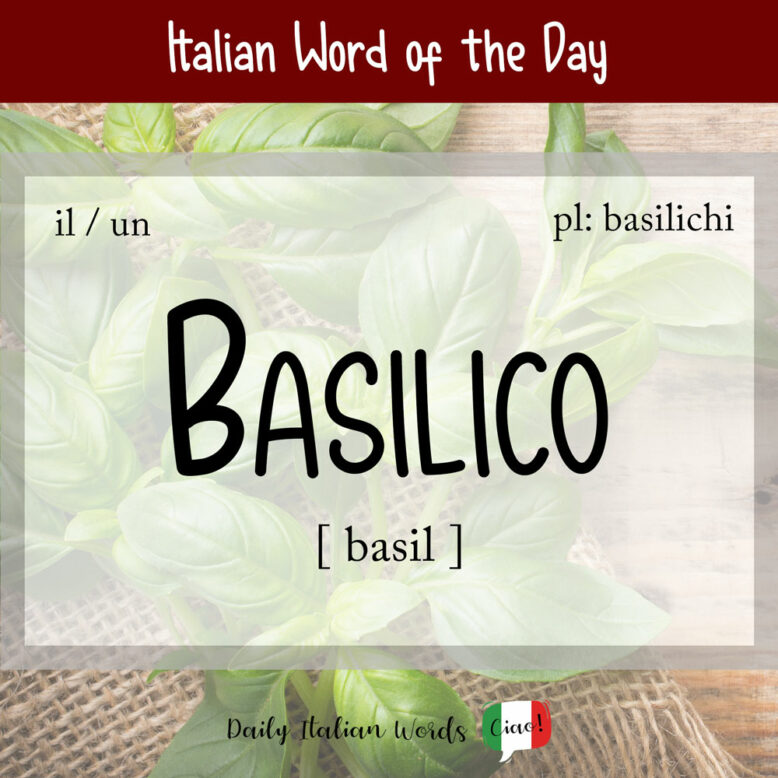A plant whose sweet-smelling leaves are often used as a herb in Italian cooking is basilico (masculine, plural basilichi), which is the word for basil. In the Tuscan dialect, it is pronounced with a double s (bassilico).

It must not be confused with the similar sounding basilica, which is the name given to certain churches granted special privileges by the Pope.
Non dimenticare di aggiungere nel sugo qualche foglia di basilico. Arrivano fresche fresche dall’orto della nonna.
Don’t forget to add a few basil leaves in the sauce. They come straight from grandma’s garden.

Basilico is a key ingredient in many staple Italian dishes and sauces including, most famously:
- pesto = a green pasta sauce comprising a mix of basil, pine nuts, olive oil, garlic and parmesan cheese
- salsa di pomodoro e basilico = tomato and basil sauce for pasta
- pizza margherita = traditionally consists of tomatoes, mozzarella and basil
- focaccia con burrata = focaccia covered with burrata cheese, cherry tomatoes and fresh basil
Often the leaves are added directly to a plain pasta dish or salad for additional flavour.

Heather Broster is a graduate with honours in linguistics from the University of Western Ontario. She is an aspiring polyglot, proficient in English and Italian, as well as Japanese, Welsh, and French to varying degrees of fluency. Originally from Toronto, Heather has resided in various countries, notably Italy for a period of six years. Her primary focus lies in the fields of language acquisition, education, and bilingual instruction.


